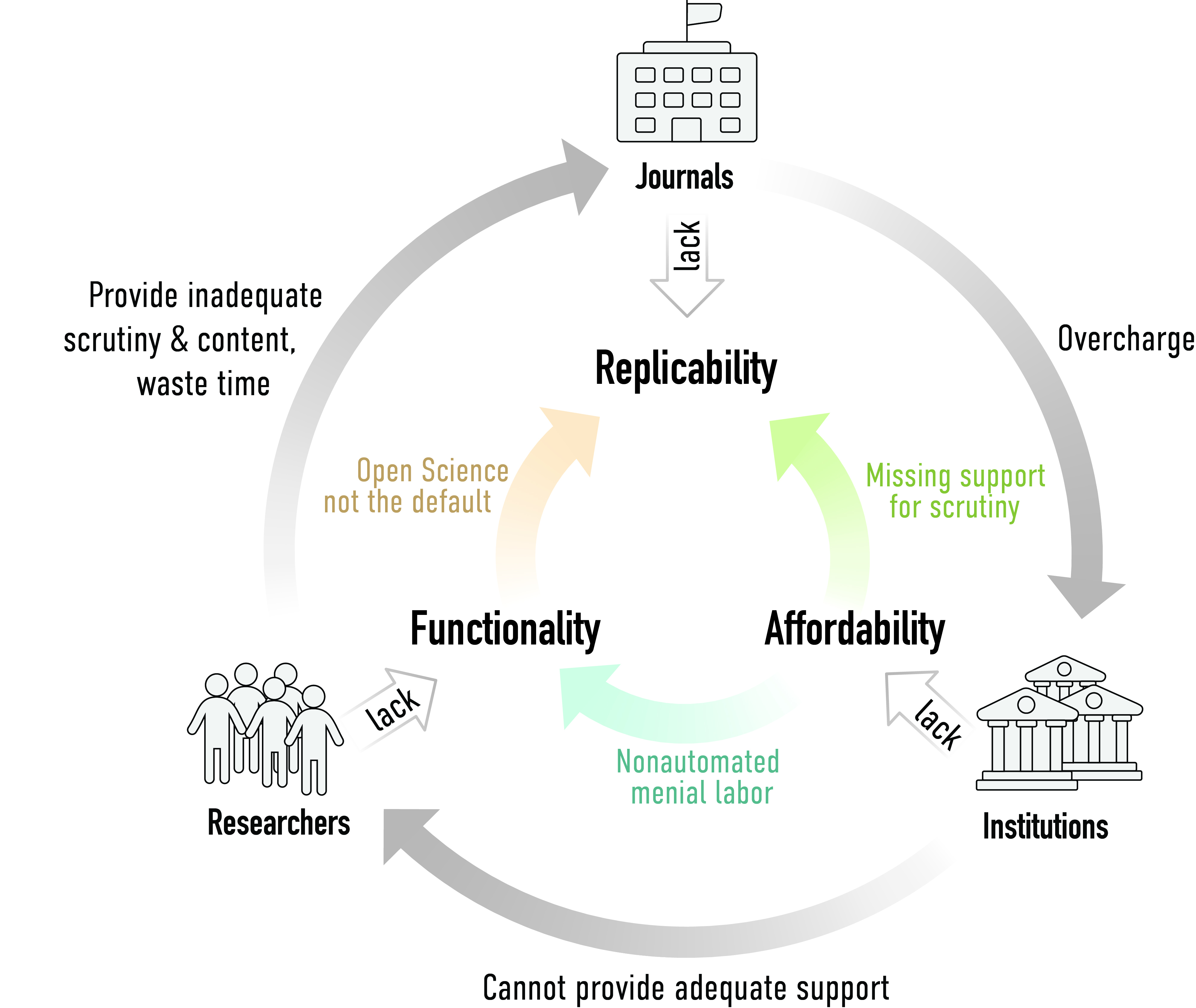Scholarly journals, on the face of it, emerged in the 17th century as a medium to facilitate communication of scientific discoveries among interested scholars. In the 21st century, it’s not all that different: researchers form communities around topics in which they share a common interest: Journal of Neuroscience, Pediatrics and Neonatology, Journal of Economics or the British Educational Research Journal. There are currently over 30,000 such journals, all serving a group of scholars with an interest in the topic of the journal.
In order to run a scholarly journal, a publisher is dependent on mostly unpaid volunteers for editing, peer reviewing and, of course, writing and submitting scholarly works to the journal. These volunteers are usually recruited from the community making up the authors and readers of the journal.
Given that the whole journal is essentially run by academics (with the exception of some menial tasks carried out by publisher employees or outsourced to companies in countries with cheap labor and lax labor laws), one would expect that if the scholarly community is not satisfied with the services of their publisher, they would simply go to some other publisher and ask them to service their journal instead. However, in many if not most cases, the owner of the journal is not the community of scholars, it is the publisher. This means, in such cases, the community has to abandon the journal and form a new one. Some of these journals have long traditions and have formed reputations over decades and sometimes centuries. Thus, conning the scientific community in either selling their ownership of these journals to corporate publishers or ceding this ownership at the point of journal inception was a clever anti-competitive strategy employed by publishers early on.
Today, there is on average one defection per year of an editorial board from a publisher to form a new journal. Publishers will likely try to argue that this low number is a sign of how satisfied scholars are with their services. An upcoming survey tells a different story: Among Mathematicians at least, 78% see the need for an improvement in journal services.
Another anti-competitive maneuver is to bind editors via non-competition clauses in their contracts. Some publishers pay some of their editors a modest honorarium, i.e., these editors are not employees of the publishers but receive some compensation for their otherwise volunteered efforts. I have recently received excerpts of such contracts (different excerpts from different contracts):
During the term of this Agreement the Editor shall observe the interests of the Journal and shall abstain from any action that will be detrimental to the Journal. In order to ensure the scientific and commercial success of the Journal and in consideration of the Publisher’s financial commitments as set forth herein, the Editor agrees that he/she shall not perform editorial activities for any other scientific journal that may reasonably be considered as being in competition with the Journal.
[…]
During the term of this Agreement, the Editor agrees not to engage in or assist others in editing, publishing, or related activities that, in the Publisher’s reasonable judgment, could result in a publication that interferes with or injures the sales of the Journal.
These contracts also include clauses that provide the publisher with data that makes it more difficult for the editorial board to leave and compete with a new journal:
The Editor hereby acknowledges that the Publisher owns and controls all rights in any list of referees and authors compiled by the Editor and/or used by the Editor in connection with the Journal, and that the Publisher shall be freely entitled to continue to use such list as it sees fit following expiration or termination of this Agreement.
[…]
All editorial material, including, but not limited to emails, received by the Editor in his/her capacity as editor of the Journal during the term of this Agreement, is intended for and is the confidential property of the Publisher and, if requested by the Publisher, shall be immediately forwarded by the Editor to the Publisher, whether or not such material has been previously reviewed by the Editor.
Thus, helpful data about the scholarly community that makes up the journal are to be left with the publisher, even if the community decides to leave.
These business practices should provide some sobering insight for all those who adhere to the neoliberal pipe-dream that just uttering the spell “competition” will magically bring down prices once we only have forced these publishers to flip all their privately owned journals to open access.
If there ever will be such a “gold” open access scenario, this caricature of a market needs to be heavily regulated, with constant government supervision, under-cover police and massive fines – and, of course, with all the bureaucracy that comes along with all that.
I’m not so sure that this is what we really want.













A good article. Something missing here (per year?): “Today, there is on average one defection of an editorial board from a publisher to form a new journal.”
Fixed! Many thanks!